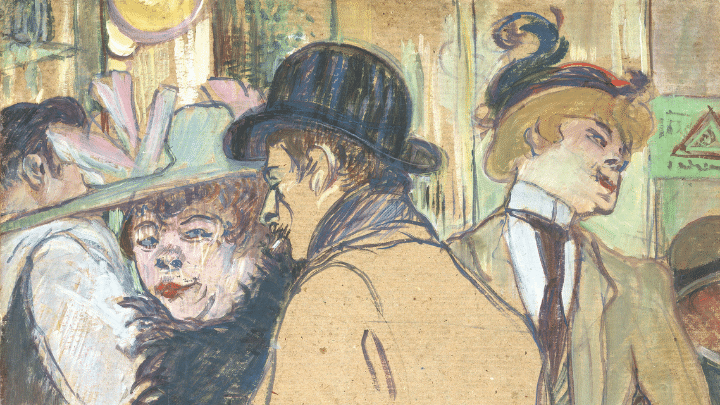10 Best José Saramago Books You Should Read

José Saramago, one of the literary giants of the 20th century, captured the world’s attention with his unique style, profound philosophical inquiries, and often allegorical storytelling. The Portuguese novelist, who was awarded the Nobel Prize in Literature in 1998, used his narratives to explore themes such as identity, morality, society’s frailties, and the human condition. His works, often marked by long, winding sentences and unconventional punctuation, provide an immersive experience that invites readers to delve deep into thought-provoking realms. The novels are as diverse in subject matter as they are consistent in their intellectual depth and literary craftsmanship.
Saramago’s works often blur the lines between reality and fantasy, giving voice to improbable scenarios that resonate powerfully with universal truths. His ability to intertwine historical events with fictional narratives, or take a simple premise to a complex exploration of societal dynamics, made him one of the most distinctive and influential writers of his time. Whether reimagining religious stories or crafting dystopian worlds, Saramago’s novels are rich in meaning and filled with subtle nuances, making them endlessly fascinating and rewarding for readers.
The following list presents ten of José Saramago’s best books. Each novel is a testament to his exceptional literary prowess, his profound understanding of human nature, and his unwavering commitment to exploring the complex interplay between individuals and society. From political allegories to historical reimaginings, this collection offers an insightful overview of Saramago’s contributions to modern literature.
1. Blindness
One of Saramago’s most famous works, “Blindness,” presents an apocalyptic scenario where an entire city is struck by a mysterious blindness. This gripping novel delves into themes of dependence, society’s fragility, and the raw essence of humanity as civilization unravels.
The story’s dystopian setting is a stark backdrop for a profound exploration of human nature. Through the lens of this sudden and inexplicable affliction, Saramago examines how individuals and society as a whole respond to crisis, creating a timeless and haunting allegory.
2. The Gospel According to Jesus Christ
In this controversial and groundbreaking work, Saramago reimagines the life of Jesus Christ, presenting Him as a flawed human rather than a divine figure. “The Gospel According to Jesus Christ” is a bold reinterpretation that challenges traditional Christian beliefs and encourages readers to think critically about religious narratives.
The novel’s daring approach and profound theological explorations sparked heated debates upon its release. Through his distinctive storytelling, Saramago invites readers to reconsider familiar religious themes from a new and provocative perspective.
3. Death with Interruptions
In “Death with Interruptions,” Saramago imagines a world where death suddenly ceases to function, leading to unforeseen consequences. This satirical novel provides a witty exploration of love, life, death, and the profound implications of immortality.
The story is filled with humour and insight, reflecting on the social, political, and philosophical ramifications of a life without death. Saramago’s creativity shines through in this clever allegory, providing a fresh perspective on age-old human concerns.
4. The Year of the Death of Ricardo Reis
Blending fact and fiction, “The Year of the Death of Ricardo Reis” follows the life of Ricardo Reis, a heteronym of Portuguese poet Fernando Pessoa. The novel provides a rich and multifaceted look at identity, love, and Portugal’s political climate during the early 20th century.
With its blend of literary invention and historical reflection, this novel showcases Saramago’s ability to create complex and engaging narratives that resonate with readers. “The Year of the Death of Ricardo Reis” stands as a brilliant example of Saramago’s unique literary vision and his talent for weaving together disparate elements into a cohesive and captivating whole.
5. The Stone Raft
“The Stone Raft” offers a fantastical premise where the Iberian Peninsula breaks away from Europe and drifts through the Atlantic Ocean. This allegorical tale delves into themes of identity, nationalism, and the inherent connection between land and people.
Through the novel’s surreal journey, Saramago crafts a vivid metaphor for cultural and national identity. His poetic prose and keen observations on human nature make “The Stone Raft” a compelling and meaningful exploration of what defines us as individuals and as a community.
6. Baltasar and Blimunda
Set against the backdrop of 18th-century Portugal, “Baltasar and Blimunda” is a historical novel that tells the love story of a disabled soldier and a clairvoyant woman. The novel’s rich historical context serves as a canvas for a tale filled with magic, love, and human dreams.
Woven with political intrigue and religious themes, “Baltasar and Blimunda” offers a multifaceted portrayal of a time and place brought vividly to life. Saramago’s detailed characterization and evocative prose create a story that resonates on both personal and societal levels.
7. All the Names
A reflection on bureaucracy, loneliness, and the nature of identity, “All the Names” follows the life of a low-level clerk who becomes obsessed with a random woman’s record. Through this singular focus, Saramago weaves a dense tapestry that examines the human need for connection and the often dehumanising nature of bureaucratic systems.
With its meticulous character development and philosophical undertones, “All the Names” showcases Saramago’s unparalleled ability to transform an ordinary premise into an extraordinary exploration of life’s complexities. Readers are invited to journey through the labyrinth of the human soul, guided by Saramago’s masterful storytelling.
8. The Elephant’s Journey
Inspired by real historical events, “The Elephant’s Journey” narrates the journey of an elephant from Lisbon to Vienna in the 16th century. With a delightful blend of humour, history, and wisdom, this novel is a whimsical yet profound examination of human nature.
Saramago’s vivid imagination and masterful storytelling make “The Elephant’s Journey” an enchanting read. The novel’s historical context is enhanced by Saramago’s insightful commentary on human behaviour, making it a memorable literary experience.
9. The Cave
“The Cave” is a thoughtful examination of modernity’s existential threats and the importance of authenticity. Following a family of potters, the novel uses Plato’s allegory of the cave to reflect on the mechanization of life and the erosion of human values.
Saramago’s philosophical insights are interwoven with a touching family narrative, making “The Cave” both intellectually stimulating and emotionally resonant. The novel’s allegorical nature offers a profound critique of contemporary society, urging readers to reflect on what it means to be truly alive.
10. The Double
“The Double” explores the unsettling discovery of a man who finds his exact double while watching a movie. The protagonist, Tertuliano Máximo Afonso, becomes obsessed with his lookalike, leading him down a path filled with existential questions and moral dilemmas. The novel serves as a complex reflection on identity, self-discovery, and the nature of individuality.
Saramago’s writing style, with its fluid sentences and dense paragraphs, enhances the novel’s dream-like quality and heightens its psychological intensity. As the story unfolds, readers are drawn into a web of intrigue, self-examination, and the thin lines that separate our public selves from our private beings. “The Double” is an absorbing and challenging novel that forces us to contemplate what defines us as individuals.
Conclusion
José Saramago’s writing is renowned for its imaginative plots, profound themes, and unique narrative style. His books are more than just stories; they are philosophical inquiries that challenge readers to think deeply about the world and their place in it. Saramago’s mastery of language and ability to intertwine complex ideas with engaging narratives make him one of the most distinctive and important writers of our time. Whether you’re interested in exploring human nature, societal structures, or existential questions, Saramago’s novels offer a rich and rewarding reading experience.






